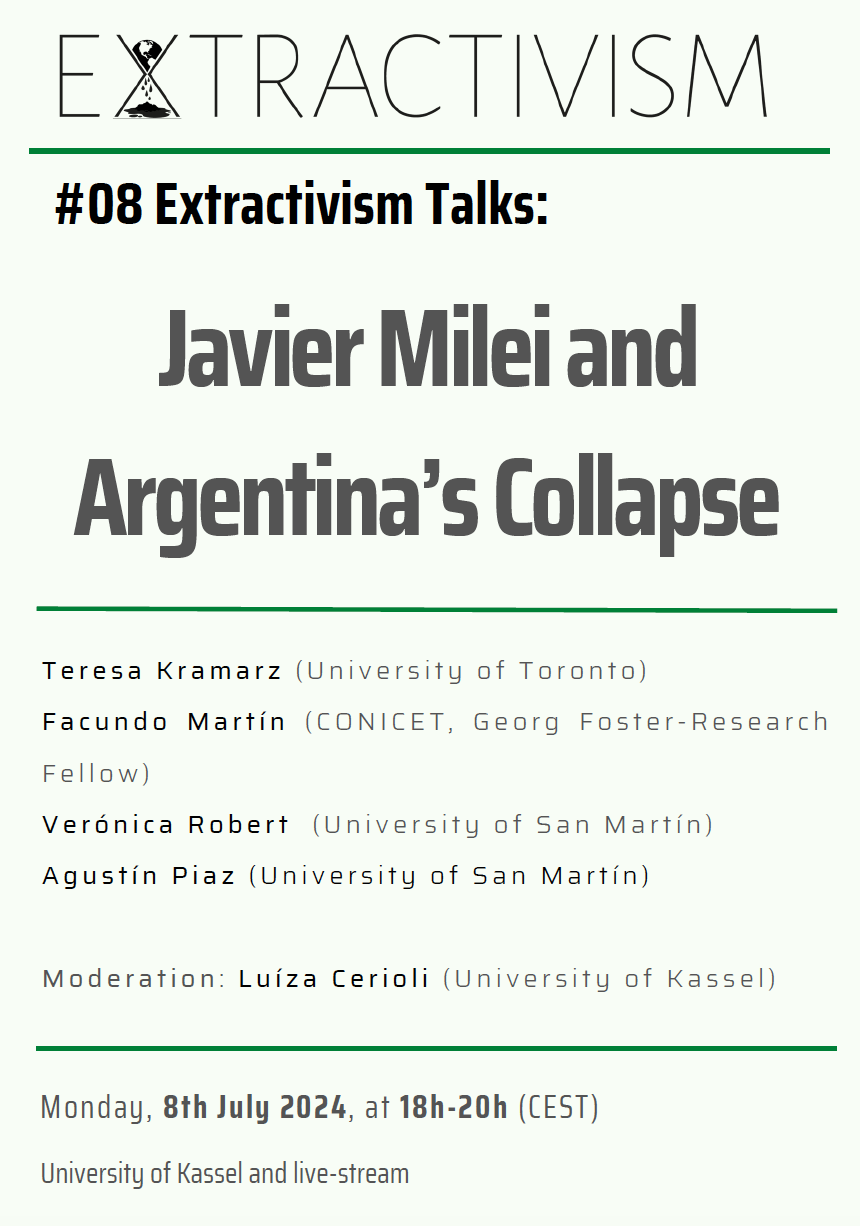The Extractivism Talks series is our platform for timely discussions on international affairs and current events. It explores the connections between global uneven development and extractivist regimes in the context of the global energy transition. The series encourages interdisciplinary discussions with unique insights about the international conditions and possibilities for change in the Global South, with a particular focus on the MENA region and Latin America.
A key issue in this regard concerns the rise of new international investors shaping the development of renewable energy, from the extraction of so-called transition minerals to the deployment of wind or solar capacities.
In this context, Extractivism Talk #11 will focus on the growing influence of Chinese and Gulf state investors as new forces shaping this transformation in Maghreb countries. How and why are they different from European or North American investors? Are they competing or complementing each other? What does their growing presence mean for domestic political dynamics in Maghreb countries? And what role do these countries’ own authoritarian capitalist systems play in overseas investment strategies and regarding their impact in target countries?
The panellists will draw on diverse perspectives and transregional comparisons to provide insights into the investment and diplomatic strategies of China and Gulf countries related to critical mineral value chains and renewable energy investments and discuss what these trends mean for the geopolitical position of Maghreb countries as well as potential implications for relations with Europe and the US.
The hybrid event will take place on 10 July 2025 at Philipps-Universität Marburg (CNMS, Hörsaal 00A26, Deutschhausstr. 12) from 18h to 20h and will also be livestreamed on Zoom.
Please register here for online participation: https://uni-kassel.zoom-x.de/webinar/register/WN_GKjZgK6aSBa6fW2goiRLCA
Panellists:
- Youssef Cherif, Director, Columbia Center Tunis, Extractivism Fellow 2025
- Siran Huang, Researcher at Leiden University, Extractivism Fellow 2025
- Dr. Andrea Ghiselli, Head of Research at ChinaMed, Lecturer at University of Exeter
Moderation: Dr. Bertram Lang, Senior Researcher, Philipps-Universität Marburg
Participants
Andrea Ghiselli (University of Exeter & ChinaMed)

Dr. Andrea Ghiselli is Lecturer in International Politics in the Department of Social and Political Sciences, Philosophy, and Anthropology of the University of Exeter. He is a non-resident Research Fellow at the TOChina Hub and the Head of Research of the ChinaMed Project. He is affiliated with the Torino World Affairs Institute. His research focuses on Chinese foreign and security policy making and China’s policy toward the Middle East and North Africa.
Siran Huang (Leiden University, The Netherlands)

Siran Huang is a Ph.D. researcher in China Studies at Leiden University, The Netherlands, specializing in Chinese overseas investments and extractive industries in Latin America. She holds an M.A. in Latin American Studies from Simon Fraser University and has worked as a consultant for environmental NGOs, sustainability consulting firms and research centres. Fluent in Mandarin, Spanish, and English, her current research analyses state/private sector dynamics in Canadian and Chinese mining expansion in Latin America. Her work includes conducting business and human rights due diligence reports for organizations such as the Norwegian Pension Fund and collaborating with Latin American grassroot NGOs to assess the real-world consequences of resource extraction.
Youssef Cherif (Columbia Global Center Tunis, Tunisia)

Youssef Cherif is a political analyst and Director of Columbia Global Center Tunis (Columbia University). He is currently pursuing a PhD at Leiden University’s Institute of Area Studies, where his dissertation explores the geopolitical and economic relations between the Gulf, Europe, and the Maghreb. Trained as a Classical Archaeologist and Historian, and in International Relations, he previously worked with international organizations, including the UN, the Carter Center, and IWPR, and contributes regularly to leading think tanks and media outlets. Cherif’s interdisciplinary background spans international relations, political economy, and social movements, with a strong focus on North Africa. He has published widely on Gulf-Maghreb relations, political transitions, and authoritarian resilience, and regularly engages in policy analysis and public scholarship. He is also affiliated with networks such as the Carnegie Civic Research Network and has been a Chevening and Fulbright scholar.



